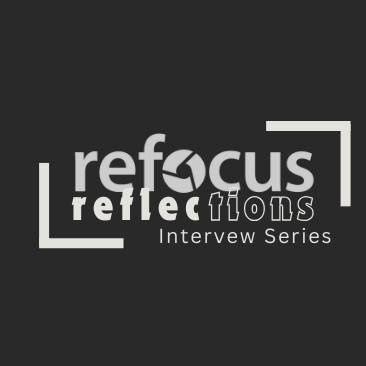Last week, Springtide Research released their latest study entitled “Thirteen: A First Look at Gen Alpha.” The goal of their research was to discover how today’s 13-year-olds view “themselves and others” and “their thoughts on religion, politics, and technology; their experiences of the COVID-19 pandemic; and their feedback on their mental health and well-being.”
I have linked the research findings above, but here is what I found particularly interesting in the responses.
Age is their most important identity marker
As someone who advocates for intergenerationality and is deeply concerned about the growing sense of isolationism and age segregation in our culture, this finding was particular meaningful to me. Despite the fact that gender and sexuality seem to be the most talked about identify markers of rising generations, this study shows that age holds the most power over how a young person views themselves.
38% of respondents identified themselves first by age, followed by 17% by gender, and 13% by family. Only 6% identified themselves by religion, 4% by sexual orientation, and 1% by political party.
Important to note: 45% of BIPOC youth noted race/ethnicity as being “very important” to their identity as compared to only 28% overall; this is an important distinction we should be aware of when looking at overall statistics and applying them across the board.
Only 26% of 13-year-olds label themselves as “not religious.”

That means the other 74% considered themselves religious in some way (33% slightly, 28% moderately, and 13% very). Of that 74% who are religious, 66% identify as Christian. Let’s compare that with the most recent adult research. According to Gallup’s research released in March 2024, 75% of adult Americans consider themselves religious (68% Christian, 7% Other). If we look at the other comparable statistics, we find that 45% of adult Americans say religion is “very important” and 26% fairly important and, just like the youth, 28% say it’s not important at all.
What does this say to me? First, that generational discipleship and the influence of parents and family still matters and it matters a lot! Look at the similarities. Children at this stage of faith development are often beginning their own differentiation and faith development, but at 13 they are still very much mirroring that of their family.
Second, imagine what could happen if we were able to nurture, support, and resource parents and churches for the work of ongoing discipleship through meaningful relationships, not just for the 4-14 window, but ongoing into youth and young adult resources. The work done by Dr. Richard Ross in his book Youth Ministry that Lasts of Lifetime and his approach of “ministry in thirds” is a fantastic place to begin.
Most 13-year-olds think religion is important.
That’s right! The majority of 13-year-olds (46%) not only consider themselves religious, they believe that religion holds a significant place of importance in their lives, with 10% believing it is the most important thing in their life.
We need to stop believing that the rising generations are “falling away” in droves, that our young people are prioritizing sports and social media and whatever else we fill in the blanks with over God, religion, and spirituality. But the truth is, our young people, this youngest generation, are very much like us adults. We are actually discipling them very well.
So what can we do about this? We can connect generations in meaningful relationships for lifelong discipleship. We can, as my friend Dr. Jay Moon says, join God in the conversation that He is having with everyone. The conversation God is having with our youth.
Now more than ever, we need to turn aside from the fears that often motivate us to program discipleship and recognize that discipleship IS happening and it’s happening in relationships. So let’s build those bridges. Let’s identify and remove barriers. And let’s help the generation that follows these 13-year-old to move those percentages towards a greater life in Christ and community.
ReFocus Reflections Interview Series!

ReFocus Reflections features 30-minute interviews packed with practical tips, tricks, and resources on relevant topics for intergenerational ministry. Each episode brings you insights from esteemed guests including biblical scholars, practitioners, and ministers such as Kaitlyn Scheiss, Dr. Carmen Imes, Dr. Henry Zonio, and many more.
Catch a SNEAK PEEK of our interview with Kaitlyn Scheiss here!
We are excited to invite you to sign up for our Patreon amount which gives you exclusive access to the full interview series as well as other incredible benefits.
We offer three tiers of membership, each with its own set of benefits:
- Basic Tier ($5/month): Access to all ReFocus resources, first dibs on free resources, roundtables, scholarships, cohorts, and webinars, plus access to the ReFocus Reflections Interview Series.
- Partner Tier ($7/month): Includes all Basic Tier benefits plus access to our Connect Generations Ministry Assessment Tool ($99 value – does not include follow-up coaching)
- Champion Tier ($10/month): Includes all benefits from the Basic and Partner Tiers plus an annual 60 Minute coaching session.
We are excited about all this new platform has to offer especially these phenomenal interviews with biblical scholars and ministry leaders.
Who do YOU want to hear from? Send your interview suggestions our way! Simply email christina@refocusministry.org with the name, contact info, and reason you think ReFocus followers need to hear from them!
About the Founder of ReFocus Ministry
Christina Embree is the founder and director of ReFocus Ministry. She holds a masters in ministry focused on Children, Youth, and Family Ministry and a doctorate in spiritual formation with a focus on age segregation and intergenerational ministry.
In addition to coaching churches of multiple denominations and traditions all around the globe, Christina serves as the Minister of Generational Discipleship for the Great Lakes Conference of the Brethren in Christ and as Next Gen pastor at Open Door Church in Lexington, Kentucky.
She is widely recognized as a speaker and author in the areas of generational discipleship, intergenerational ministry, and family ministry. As the mother of three children, she is familiar with the challenges of faith at home and pastoral ministry. She along with her husband Luke share a love for the church, their community, and the global work of peace and restoration through Jesus.
Interested in having Christina visit your church, speak at your conference, or coach your team?
Christina speaks on a wide range of topics related to children, youth, and family ministry with a unique focus on connecting generations for discipleship within your church. Her personalized approach allows you to pinpoint the needs of your community and gain the insight that you are looking for. Whether this is a volunteer team training and pastoral staff meeting or a ministerial conference, her experience and knowledge will help you determine the next step forward in creating lifelong disciples.



